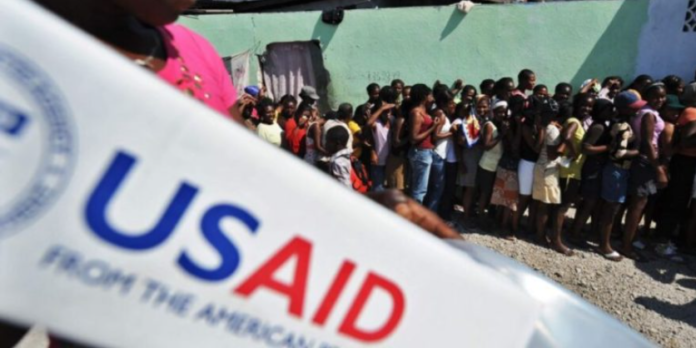By Jemimah Wellington, JKNewsMedia Reporter
NIGERIA RANKED among the top beneficiaries of United States Agency for International Development (USAID) funds in Africa for 2023, receiving $824 million (approximately N1.23 trillion at an exchange rate of N1,498/$).
Despite surpassing major economies like South Africa and Egypt in aid disbursements, concerns loom over potential funding cuts that could disrupt key health and humanitarian programmes in the country.
According to data sourced from Statista and ForeignAssistance.gov, the United States government’s foreign assistance portal, places Nigeria among the top five recipients of USAID support.
Ukraine topped the global list with $16.02 billion, largely due to the ongoing conflict with Russia.
Ethiopia led African beneficiaries with $1.67 billion, followed by Somalia ($1.04 billion), the Democratic Republic of Congo ($936 million), and Nigeria in fourth place.
South Sudan, Kenya, Uganda, Mozambique, Sudan, and Tanzania completed the continent’s top ten.
The information notes that key sectors funded by USAID in Nigeria include health, education, and humanitarian relief.
It says the agency’s financial support has sustained crucial projects, such as the Global Health Supply Chain, HIV/AIDS interventions, and malaria and tuberculosis control programs.
However, recent policy shifts under U.S. President Donald Trump threaten the continuity of these initiatives.
Over the past two weeks, the U.S. administration has frozen billions in foreign aid, including USAID allocations.
Trump, who resumed office last month, has prioritised budget cuts, with USAID becoming a key target.
The funding suspension raises concerns over job losses, with a senior official from a USAID-partnered organisation warning that more than 1,000 Nigerian health workers could be affected.
Also, public health facilities have already reported disruptions.
Reports say that clinics are experiencing dwindling stocks of essential medicines, while rural communities face the possibility of losing critical outreach programmes.
The USAID’s $140 million HIV/AIDS programme for 2024 now hangs in the balance, potentially affecting thousands of patients dependent on life-saving treatment.
Promptly, the Nigerian government has initiated measures to mitigate the impact of USAID’s funding freeze.
A multi-ministerial committee has been formed to explore alternative financing for health programmes.
Also, the Nigeria’s Federal Executive Council (FEC) recently approved $1 billion for healthcare sector reforms, alongside an emergency allocation of $3.2 million to procure 150,000 HIV treatment packs over the next four months.
The country’s authorities assure that priority will be given to sustaining essential services, particularly maternal and child healthcare, infectious disease control, and the training of healthcare professionals.
Health Minister, Professor Muhammad Ali Pate, also confirmed that efforts are underway to ensure patients receiving treatment for HIV, tuberculosis, and malaria do not suffer setbacks due to policy uncertainties.
As discussions continue, health experts caution that Nigeria’s public health system faces severe challenges if USAID funding is permanently halted, noting that the government’s ability to secure alternative financial support remains critical to sustaining life-saving health interventions across the country.





